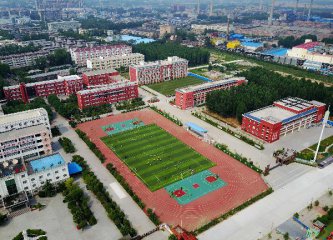
It has become consensus in large Chinese cities to develop the rental housing market. China is entering an era of rental housing. Report from Centaline Property shows that over 30 provinces and cities have introduced policies on house renting recently.
An industry insider said that the housing market is shifting from a house sales-oriented one to one that lays equal stress on house sales and renting. The supply and demand pattern in the house market is expected to be restructured. This makes return for residential use and reduce irrational house purchasing demands.
Reduce resistance: various house rental policies are introduced
On August 30, Hangzhou City, capital of Zhejiang Province, released new policies on rental housing. So far, all the 11 pilot cities for rental housing, except Zhaoqin, Guangdong Province, revealed pilot plan.
Hangzhou said on its plan that the city will increase rental housing supply. In the next three years, new rental housing will account for 30 percent of the total new commodity residential houses. There will be at lease 80,000 public rental houses in the next five years. In addition, Hangzhou will increase effective land supply for rental housing, include the land supply for rental housing into the city’s annual land supply plan and launch pilot programs of special rental housing for talents before the end of September 2017. The city will also vitalize stock land and housing and explore the construction of rental housing on rural land.
The plan also proposed to support state-owned enterprises (SOEs) to develop large-scale house renting. It noted that it should give full play to SOEs as a leading and sample role and support SOEs to develop large-scale house renting.
Meanwhile, it will also support the development of specialized rental housing enterprises. It will encourage the development of private house renting enterprise, encourage real estate development enterprises, intermediary enterprises, property services enterprises to carry out house renting business, support real estate development enterprises to transform the mode of operation from a development and sales-oriented one to one that lays equal stress on house sales and renting, encourage qualified real estate development enterprises to spare some long-term new commercial houses for rental.
In addition, Hangzhou will also provide financial support. It encourages financial institutions to provide financial support to house renting companies in the principle of compliance, risk control and business sustainability and supports eligible house renting enterprises to issue bonds and real estate securitization products. Financial regulatory departments should actively support house renting companies to launch pilot t real estate investment trusts (REITs) programs to raise funds via multiple channels.
Centaline Property chief analyst Zhang Dawei said that the real estate policies in the first half mainly aimed to restrict house purchasing and house loans to smooth the frantic house market in first- and second-tier cities. The government’ major move for the next half is to expand the house renting market and increase rental housing supply.
Zhang Dawei said that in view of the policy content, there are two aspects. First is to increase supply. Second is to ease resistance for house renting, for example, giving tenants and homeowners equal rights.
Increase supply: increase
The Ministry of Land and Resources (MLR) and the Ministry of Housing and Urban-Rural Development jointly issued a plan on pilot programs in 13 major cities, including Beijing, Shanghai and Guangzhou, to build rental housing on rural land.
Meanwhile, it will improve the construction and operation mechanism of rental housing. Rural collective economic organizations can build and rent housing on rural land themselves or through joint venture. It explores to establish a rental formation, monitoring, guidance and supervision mechanism to prevent abnormal fluctuations of rental and maintain the stability of the market.
In addition, it will guarantee tenants with rights to basic public services. Tenants can apply residence permit with registered house leasing contracts and enjoy basic public services. If allowed, cities should further build and improve the social guarantee mechanism for non-local tenants.
It is noteworthy that houses built on collective land for rental use shall not be sold, and tenants shall not sublease the house.
An official from the MLR said that in municipalities and some provincial capital cities where the house prices are high and constriction land is in shortage, the policy not only increases the source of constriction land and the supply of rental housing. On the other hand, it expands the residential and industrial development functions of collective construction land. It plays a positive role in vitalizing low-efficiency collective construction land, solving the housing problem of migrant works and improving the economic and social environment in suburbs. In addition, it expands channels for rural collective economic organizations and farmers to improve income.
Turning point: restructure real estate policies
Zhang Dawei said that compared to the sharp rise in house prices, rental housing can reflect the inhabitable value of houses. Therefore, with huge disparity between house purchasing and renting, most Chinese consumers choose to buy houses. Therefore, they have preferred to buy houses rather than rent house.
Data from Haitong Securities shows that currently, the price-to-rent ratio in major Chinese cities is about 38.5; while that in Shanghai, Beijing, Shenzhen, Xiamen and Nanjing exceeds 50. But according to international standards, the ration is regarded to be health in a range between 16.7 -25. That is to say, if the ratio is higher than 25, there might be bubble. Haitong Securities Vice President Li Xunlei said that the house prices in most Chinese areas have seen bubbles.
Bank of China International pointed out in a report that under the background of the real estate market bubbles, China takes move to the development of rental housing market in order to house renting demands to ease supply and demand contradictions in the real estate market, stabilize housing prices and make house return for residential use.
The era dominated by house purchasing is entering a turning point. With strong policy supports, the era of house renting is coming close. Data from real estate research platform Lianjia Institute shows that the total house rental income in China will reach 1.6 trillion yuan in 2020, and reach 4.6 trillion yuan in 2030.
Mao Daqing, founder of office sharing platform UR Work and 5Lmeet predicted in last November that the total house rental in China will be more than 3 trillion yuan in the next decade, and there will be 230 million people renting houses. The total rental will reach 4.6 trillion yuan, and 300 million people will rent houses in 20 years.
Translated by Coral Zhong




















Latest comments